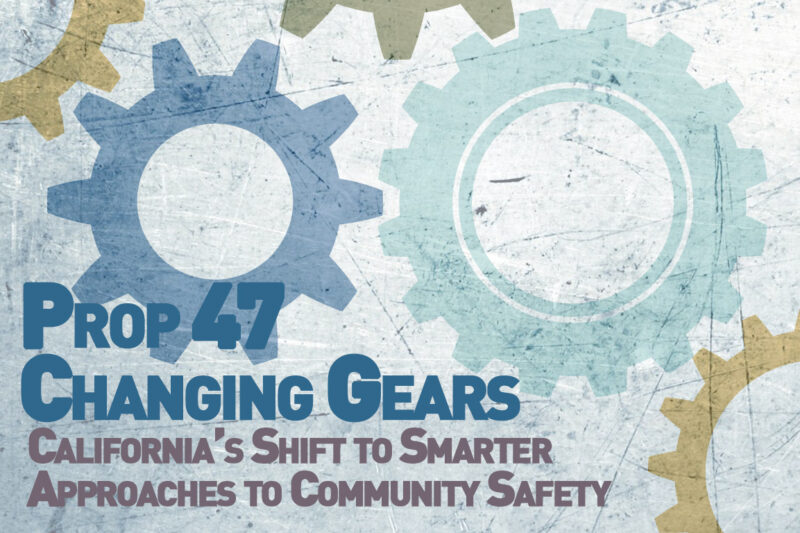
There’s a growing bipartisan consensus in the U.S. that locking up so many people for so long has bankrupted us both financially and morally. Joining that chorus just recently is a group of 130 law enforcement leaders from around the country, including California, who called for safely reducing the number of people behind bars. While admitting there is a problem is the first step, now comes the hardest part: translating that consensus into legal and cultural change.
America’s criminal justice reformers, however, need look no further than the nation’s largest state to learn from that transformation happening in real time. Nearly 60 percent of California voters from across the political spectrum approved Proposition 47 last year, embracing a new vision for community health and safety that prioritizes prevention and treatment over draconian sentences. The measure reduced six low-level drug and property felonies to misdemeanors, cutting incarceration costs and investing those savings into programs to make our communities stronger.
One year later, California’s experience offers lessons — both positive and negative — for other states looking to take action.
On the anniversary of Prop 47, the ACLU of California has released a report analyzing hundreds of pages of public records it obtained related to implementation of the new law in all 58 California counties. According to documents reviewed by the ACLU, California is already seeing tremendous benefits: Thousands of people have reduced an old conviction on their record, opening up paths to employment, education, and other opportunities. Jails are significantly less crowded. And the state has already saved tens of millions of dollars that will be diverted from jails and reinvested in communities in 2016.
This policy isn’t just about the numbers, however encouraging: It’s profoundly personal.
Prop 47 has allowed people like Kerry Walls to free themselves from the stigma of a felony conviction and turn the page on a past mistake. Last week, Walls applied for a new job. For the first time, he was not haunted by what a criminal background check would reveal to his potential employer. Thanks to Prop 47, Walls was able to reduce an old conviction for petty drug possession on his record, finally putting behind him his past struggle with addiction and opening up doors that had been firmly closed. As many as one million other Kerry Walls may be eligible to reduce an old petty conviction on their record thanks to Prop 47.
This policy is also about culture change for local law enforcement and health departments. By voting for Prop 47, Californians demanded that we stop trying to jail our way out of societal challenges like mental health, addiction, and homelessness — and instead take a more comprehensive, effective, and fiscally sound approach to these problems. Achieving this change will take more than a year and will require tremendous cross-agency collaboration and a shared vision.
Some of California’s local agencies are actively tackling this effort. In San Diego, for example, the city attorney launched its Community Court Program that allows people to be held accountable for a petty offense by working in the community instead of going to jail. That program is not just saving taxpayer dollars; it’s also directly benefiting the community through cleaner parks and streets.
Other local agencies, however, are lagging.
One year is not much time for large agencies and county bureaucracies to adjust their practices. Patience is required, but they also need to take the voter mandate seriously and begin to implement the law faithfully. Records obtained by the ACLU reveal how local agencies, particularly some in law enforcement, are resisting faithful implementation of Prop 47 and the voter mandate behind it.
For example, some law enforcement agencies have prioritized petty drug possession arrests since Prop 47 passed and have failed to connect drug offenders to treatment facilities. This is the exact opposite of what voters intended. Other agencies claim that Prop 47 all but bars them from making drug arrests. These agencies too have failed to establish connections to services. Instead, they do nothing.
This disappointing reaction from state and local government to a clear voter mandate is a hurdle that must be overcome. California has an opportunity to show the rest of the country how to reduce incarceration rates and improve community health and safety through wise investments in prevention strategies. We must not squander it. The millions of Kerry Walls struggling to make good on their past mistakes deserve another chance.

